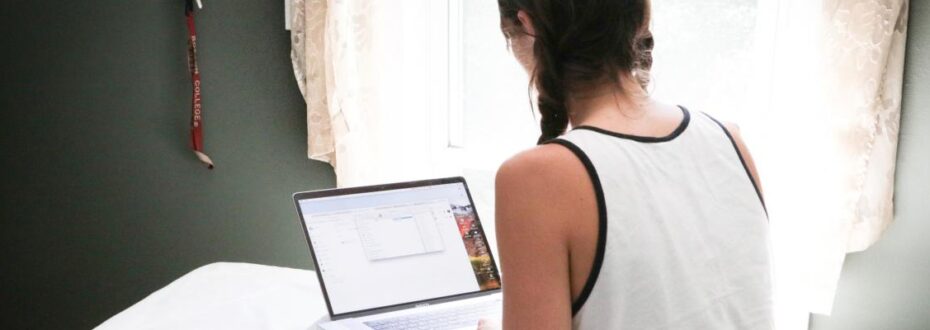Since the coronavirus lockdown started, our daily lives have changed in so many ways. For me, I have noticed that:
- I often don’t know what day it is, but always know how many toilet rolls I have left.
- I have mastered the ability to sprint backwards after opening the front door to a delivery, waving serenely from the staircase.
- After years of hardly any exercise since PE lessons ended, I am now a connoisseur of aerobics videos.
It is natural for us to have developed some new habits to try to deal with this situation. What wider changes has the lockdown brought for us? Here are some reflections.
The separation between our different lives has been lost
Our colleagues see a different side of us now. As our smart attire remains untouched in the wardrobe, we join a staff meeting from our kitchens. We hastily comb our hair seconds before the call starts and carefully direct the camera away from the towering pile of dirty dishes behind us.
The different aspects of our lives are all playing out in one home, even in one room: you may be a parent, partner, friend and employee, all operating from the same place. Suddenly, your home needs to serve lots of different functions: as an office, an impromptu gym, a home school and as a sanctuary from the uncertain outside world. This means we have fewer places and resources to use to release stress and boost our wellbeing.
Feeling burnt out and fed up
Some days you may feel able to offer support for friends and family; at other times the mere mention of Covid-19 may feel intolerable. It is good to check in with your emotions and feelings, through journaling, meditating or using a mood tracking journal, so you have a better sense of where you’re at. As the common saying goes, you can’t pour from an empty cup – it is important to look after your own wellbeing, and then you could be in a position to help others.
Feeling disconnected from the wider world
For many, there is no travelling to and from work anymore, nor meeting friends and family. It’s no wonder that some people are increasingly turning to social media for the feeling of social connection and being in the loop with loved ones.
Feeling overwhelmed by negative news
Our boundaries with social media may need reaffirming. It can be helpful to see social media and news like food – be mindful of choosing what you read. Just as you wouldn’t eat food thrown in your face, try not to feel that you have to absorb constant news updates. For example, Twitter has a function where you can block words you may find triggering from appearing on your feed. Scrolling through negative headlines may seem harmless, but the material may resonate with you and lower your mood more than you consciously realise. It is a balance between staying informed on important guidance, and not being overwhelmed by negative news.
The need to connect with activities that makes us feel good
While feeling connected to our family and friends is important, also consider what helps you to feel more connected to yourself. Here are some suggestions below:
- Writing, painting, baking or whichever creative activity you enjoy. This is more about doing something which allows you to express yourself, rather than feeling pressure to create a masterpiece.
- There is some evidence that nostalgia for the past, for example looking through photos of good memories, can be a helpful way to boost mood.
- Regular exercise can be of huge importance in boosting mood, sleep quality and self-esteem. You can try an array of free exercise videos online.
- Try to be aware of the language you are using in quarantine – instead of being stuck indoors or on lockdown, you could phrase it as ‘staying safe’ at home or ‘cocooning’. Language is powerful and small differences can help change the way we feel about the situation.
- Practice gratitude by noticing the small positives which occur. For example, while talking to your colleague on video call, you may spot their partner walking by and have a chat and joke with them, which you wouldn’t have been able do in normal circumstances.
- You could try making and decorating a wellbeing poster, with other people in your household if you live with others. Consider the following headings: Creative activities, Calming activities, Exercise – and list ideas under each. For example, under calming activities you might have speaking to friends, looking after my plants and guided meditation. Then, when you’re feeling uninspired or bored you can check out the options you have set out for yourself.
- You could ask a friend or family member if you can audio record an interview with them. Have they learnt any new things about themselves during the lockdown? What are the most challenging things about this time and how can we help ourselves? Have any positives come from the lockdown? Doing this can help us express how the lockdown makes us feel, increase bonding and remind us that although each day can feel the same, there will be a time when we look back on this as a difficult and important time in our history. You could also put pen to paper and write for our A Year In Our Lives project.







